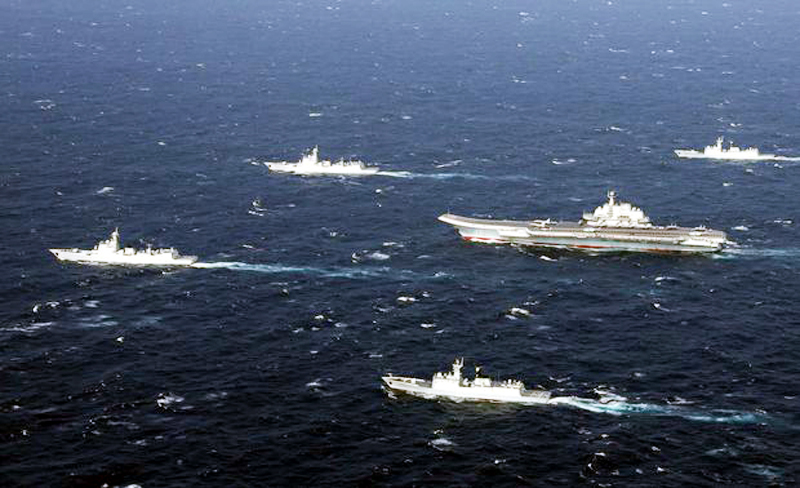NEW DELHI, Nov 15: The fragile security situation in the South China Sea, in addition to violations of established codes of conduct, poses a clear danger to “good order” and “discipline” at sea, Navy Chief Admiral R Hari Kumar said on Wednesday, in an oblique reference to China’s military assertiveness in the region.
There have been growing global concerns over China’s sweeping claims of sovereignty over all of the South China Sea, a huge source of hydrocarbons.
Several countries in the region including Vietnam, the Philippines and Brunei have counterclaims.
“The fragile security situation in the South China Sea, in addition to the happening of violations of established Codes of Conduct or Confidence Building Measures, poses a clear and present danger to good order and discipline at sea,” Admiral Kumar said.
He was speaking at the Indo-Pacific Regional Dialogue (IPRD), which is an annual apex-level international conference of the Indian Navy aimed at addressing “holistic” maritime security issues in the region.
The ASEAN countries have been insisting on a binding code of conduct (COC) on the South China Sea largely in view of China’s consistent attempts to assert its expansive claims over the region.
In a ruling in 2016, the permanent court of arbitration at the Hague dismissed Beijing’s claim to much of the South China Sea. China, however, rejected the verdict.
In his remarks, Chief of Defence Staff Gen Anil Chauhan highlighted the historical as well as contemporary salience of the Indo-Pacific and talked about India’s vision and perspective for the region.
Admiral Kumar also talked about the increasing significance of the Indo-Pacific and noted its importance for global trade, geopolitics and how it has witnessed increasing military presence.
The Chief of the Naval Staff said that the Indo-Pacific has some of the world’s most important sea lanes, with trade passing through choke points such as Malacca Straits, Dondra Head and Gulf of Aden and that the region is also the world’s most bio-diverse area.
“Additionally, this region, being the most militarised in the world, further exacerbates the probability of ongoing competition becoming a conflict.
“More than 50 warships of extra-regional forces remain deployed in the Indian Ocean Region for various missions, including for anti-piracy patrol off the Gulf of Aden, and the wider Indo-Pacific also has significant naval presence,” he said.
“Owing to the increased presence of multinational forces and differing interpretations of international laws, there is this fear that the region’s ‘global commons’ can change to ‘contested seas’,” he said.
The Navy chief further added that “this contestation at sea, can have adverse consequences for security — physical, social as well as economic.”
In his remarks, Admiral Kumar also cited the disruption of Black Sea shipping lanes during the ongoing conflict in Europe, in an apparent reference to the Russia-Ukraine war.
“This conflict had disturbed grain exports from Russia and Ukraine, which together provide 30 per cent wheat, 75 per cent sunflower oil and 20 per cent maize of the world’s supply,” he said.
“This sparked global panic, particularly in North Africa and the Middle East, which rely on grain imports from the region,” he said.
Admiral Kumar also cited the World Food Programme’s observation that food security in the region has grown increasingly precarious, with nine countries under moderate or high risk of serious hunger.
“This is what a disruption, leave apart a complete blockade, could cause to the world and world economy,” he said, highlighting the importance of sea lanes.
“But while these fissures will continue to exist, the seas will remain a common binder for all of us to work together,” he said.
“As the saying goes, seas unite, they don’t divide, there is a natural tendency for nations to engage and collaborate in the maritime domain,” he said.
At the same time, he said matters relating to the maritime sphere do not assure global consensus.
“The vastness and open nature of the oceans present concurrent challenges and opportunities. Opportunities straddle multiple sectors like trade, energy, fisheries, etc. And, similarly, challenges are also spread across an expansive spectrum,” he said.
“Many of these manifest as threats, which are trans-national and, thus, simultaneously affect all of us,” he added. (PTI)


